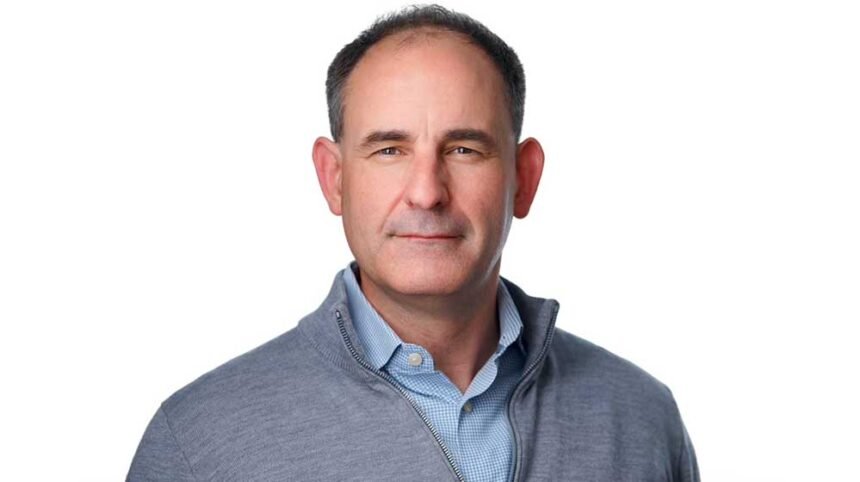Professor Mike Hewitt’s award-winning research helps logistics companies do their work more efficiently.
An international expert in supply chain, Professor Mike Hewitt recently earned two prestigious recognitions. He was named a Fulbright Scholar, which will take him to Australian mining operations, and he was selected as an Amazon Scholar to solve complex, large-scale issues for the online retailer.
He expects that his experiences will translate directly to his classrooms and support his focus on helping students create their own logistics solutions.
“I am teaching problem solving in a supply chain and logistics context,” says Hewitt, who also serves as the Ralph Marotta Endowed Chair of Free Enterprise and director of the Supply Chain and Sustainability Center in the Quinlan School of Business.
In 2025, Hewitt also was named Loyola University Chicago’s Faculty Member of the Year in recognition of his achievements in teaching, scholarship, and service.
Scholarship around the world
As a Fulbright Scholar, Hewitt will be spending six months of 2026 studying the decarbonization of mining operations in Australia. More specifically, he will explore how to most efficiently implement electric vehicles into mining logistics, from battery charging locations to battery swapping. He will then create algorithms to apply the research at scale to Australian and U.S. mining operations.
“These ores are needed by economies around the world,” said Hewitt. “I’m excited to have this opportunity to contribute to these industries and help them reach their goal of achieving net-zero emissions.”
In addition, Hewitt’s work as an Amazon Scholar—which began in 2024—is driving innovation within the transportation program at Amazon. According to Amazon, researchers like Hewitt “have a ground-up impact on our systems, our business, and most importantly, our customers.” Hewitt and other scholars are measuring real impacts of their work at massive scales in partnership with Amazon.
“Academic research often uses simple models of how things actually work,” said Hewitt. “To see how the ideas we create translate to operational speed and scale is fascinating and inspiring.”
Award-winning research
His Fulbright Scholarship and work with Amazon are a continuation of his enormous impact on supply chain research and practice. During his career, Hewitt has developed numerous state-of-the-art algorithms for optimizing different aspects of the supply chain, including inventory and freight transportation, and multiple patent applications have been submitted based on his work.
He also has published more than 50 research articles in top journals on supply chain logistics, earning grants from the National Science Foundation, the Material Handling Institute, and the New York State Health Foundation.
Hewitt’s research articles are frequently recognized as being among the best. Notably, he has received best paper awards four times, including the Glover-Klingman Prize for best paper published in Networks in 2019 for “An Exact Bi-Directional A* for Resource Constrained Shortest Path Problems.” The breakthrough algorithm he and his co-authors developed in the paper helps shipping companies create the most efficient routes, lowering costs for themselves and consumers.
Teaching fundamental skills
In the classroom, Hewitt teaches the same fundamental problem-solving techniques he uses in his academic and industry work.
“I always try to emphasize organizing your thinking and encouraging students to think it through,” Hewitt said. “What are the problems you’re trying to solve, what are the things you can choose, and what do you need to factor in?”
He often hears back from students applying skills learned in his classroom during their careers. As one example, Hewitt guides students in a course on inventory management on how to track inventory with an Excel spreadsheet. To Hewitt’s delight, students have kept that sheet close during their careers.
“I would get messages from students years later that said they were still using those spreadsheets in their jobs, which really is what we’re here for: help students get jobs, then help them succeed when they do.”











